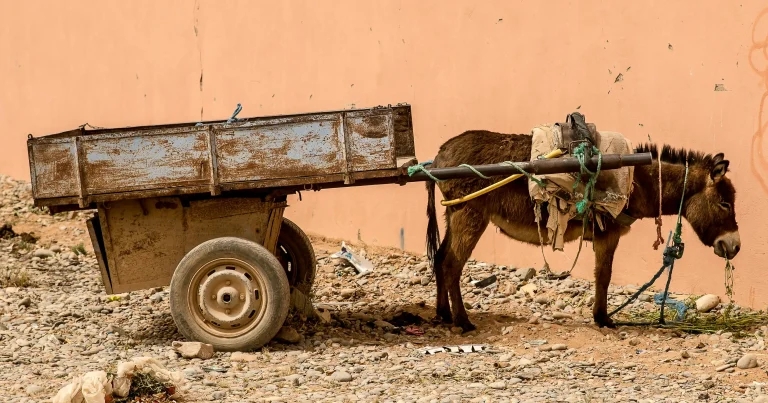8 Jul 2025
A charity vet has says the equids are ‘physically and psychologically broken’ by kiln work.

Published in Animals, the paper reviewed veterinary field surveys of equids working in brick kilns across Egypt, Nepal, India and Pakistan over two decades to examine the psychological impact of their living and working conditions.In response to the findings, the charity Safe Haven for Donkeys announced plans to test a tractor-based alternative to donkey labour in Egyptian kilns.
Chief executive Andy Foxcroft said: “It won’t be easy to shift mindsets, but this study gives us powerful evidence to push for change.”Learned helplessness
The study compared behavioural reports on donkeys and mules with human criteria for the disorders and analysed the environmental risk factors that can induce them.
It found the assessments supported a behaviour profile consistent with learned helplessness and/or cPTSD, with evidence of five of the seven indicators of learned helplessness that are assessable in animals, and three of the four that are assessable in animals for cPTSD.
Indicators included passivity, exposure to prolonged and inescapable trauma, signs of fear and anxiety, enhanced startle reactions and depression.
On average, 15% of the donkeys surveyed were reported as apathetic or depressed, with as many as 82% reported as such in one of the surveys.
Co-author and psychologist Theodora Capaldo said: “Their helpless shutdown is not stoicism; it’s psychological devastation not at all unlike what we see in humans who endure trauma.
“Through this study, we have shattered the erroneous stereotype of the stoical donkey. Instead, our paper pleads for empathic sensitivity and compassionate behaviour.”
A total of 53% of donkeys and mules also bore scars and/or open wounds – up to 98% in one survey – largely attributed to poorly fitted harnessing and beatings, while, on average, 62% were classified as being thin or very thin.
Safe Haven for Donkeys veterinary consultant Anna Harrison said: “The paper puts science behind what many of us have seen first-hand.
“These donkeys are sentient beings – they feel pain, fear and despair. In the kiln environment, there is no escape.
“Many become physically and psychologically broken by the relentless stress and abuse they face.”
The paper also noted cost and logistical issues have made kiln owners reluctant to transition from donkey labour to mechanised alternatives but argued “ideally configured” tractors could bypass those barriers.